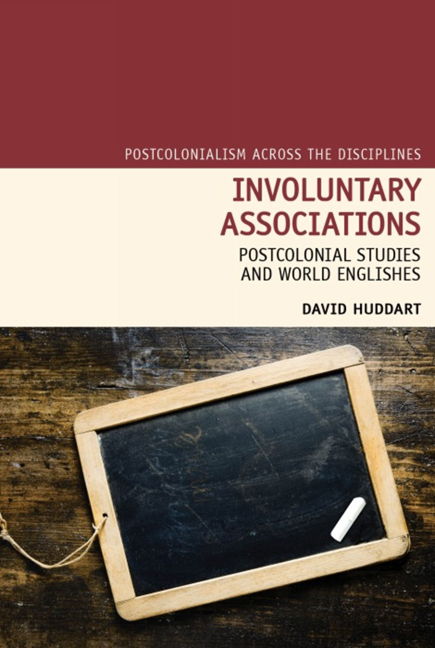Book contents
- Frontmatter
- Dedication
- Acknowledgements
- Contents
- Introduction
- 1 Involuntary Associations: ‘Postcolonial Studies’ and ‘World Englishes’
- 2 Grammars of Living Break their Tense: World Englishes and Cultural Translation
- 3 English in the Conversation of Mankind: World Englishes and Global Citizenship
- 4 Declarations of Linguistic Independence: The Postcolonial Dictionary
- 5 Writing after the End of Empire: Composition, Community, and Creativity
- 6 Slow Reading: The Opacity of World Literatures
- Conclusion: English Remains, Englishes Remain
- Bibliography
- Index
3 - English in the Conversation of Mankind: World Englishes and Global Citizenship
- Frontmatter
- Dedication
- Acknowledgements
- Contents
- Introduction
- 1 Involuntary Associations: ‘Postcolonial Studies’ and ‘World Englishes’
- 2 Grammars of Living Break their Tense: World Englishes and Cultural Translation
- 3 English in the Conversation of Mankind: World Englishes and Global Citizenship
- 4 Declarations of Linguistic Independence: The Postcolonial Dictionary
- 5 Writing after the End of Empire: Composition, Community, and Creativity
- 6 Slow Reading: The Opacity of World Literatures
- Conclusion: English Remains, Englishes Remain
- Bibliography
- Index
Summary
English allows us to advance toward global exchange and solidarity among the institutions of civil society, extending bonds between citizens far and wide across the globe. For this reason, considering English as an international language can also bring a sense of possibility in terms of strengthening what might be called ‘planetary citizenship’, i.e. alliances among citizens with a universalist intent.
Telma Gimenez, ‘ETS and ELT: Teaching a World Language’Introduction
Scanning the shelves in one of Shanghai's bookshops reveals that there is not only a clear appetite in China for English language materials but also, and unsurprisingly, a well-developed local industry in textbooks for learning English. Many textbook covers currently bear the charismatic face of Barack Obama, as we are invited to buy selections of his interviews, TV debates, and best speeches (‘Wisdom on the tongue’, ‘Yes, you can!’), and through these examples learn how to speak like Obama himself. A very particular model of communication seems to have made its way to centre stage under globalization, and it is one that, while not necessarily requiring the English language, is certainly associated with English, whether British or more likely American. Obama appears to be the very best example of this model of communication and, if China is any indication, this communicative model is not necessarily felt to be linguistically imperialist. Is it possible, speaking idealistically, for all our diverse voices to conduct our global conversation in English? Michael Oakeshott (1962) famously argued for the role of poetry in ‘the conversation of mankind’, a conversation that was very much not an argument with a sense of directedness, expected resolution, or feared assimilation of one voice to another. Of course, from the perspective of critics of linguistic imperialism, English is without question an assimilative force, one that has been used to win arguments, arguments that were initially framed in terms beneficial to Anglo-American centres. Indeed, Oakeshott stresses the need for a ‘diversity of voices’, which in one sense is lost under the sway of English's hegemony. Yet there are other ways of understanding the spread of English, as we have already considered. This chapter will discuss the connection between English and global citizenship through considering shifts in scale brought about by globalization, different models of global citizenship, English's role in global institutions, cosmopolitanism, and alternatives to English.
- Type
- Chapter
- Information
- Involuntary AssociationsPostcolonial Studies and World Englishes, pp. 52 - 74Publisher: Liverpool University PressPrint publication year: 2014

